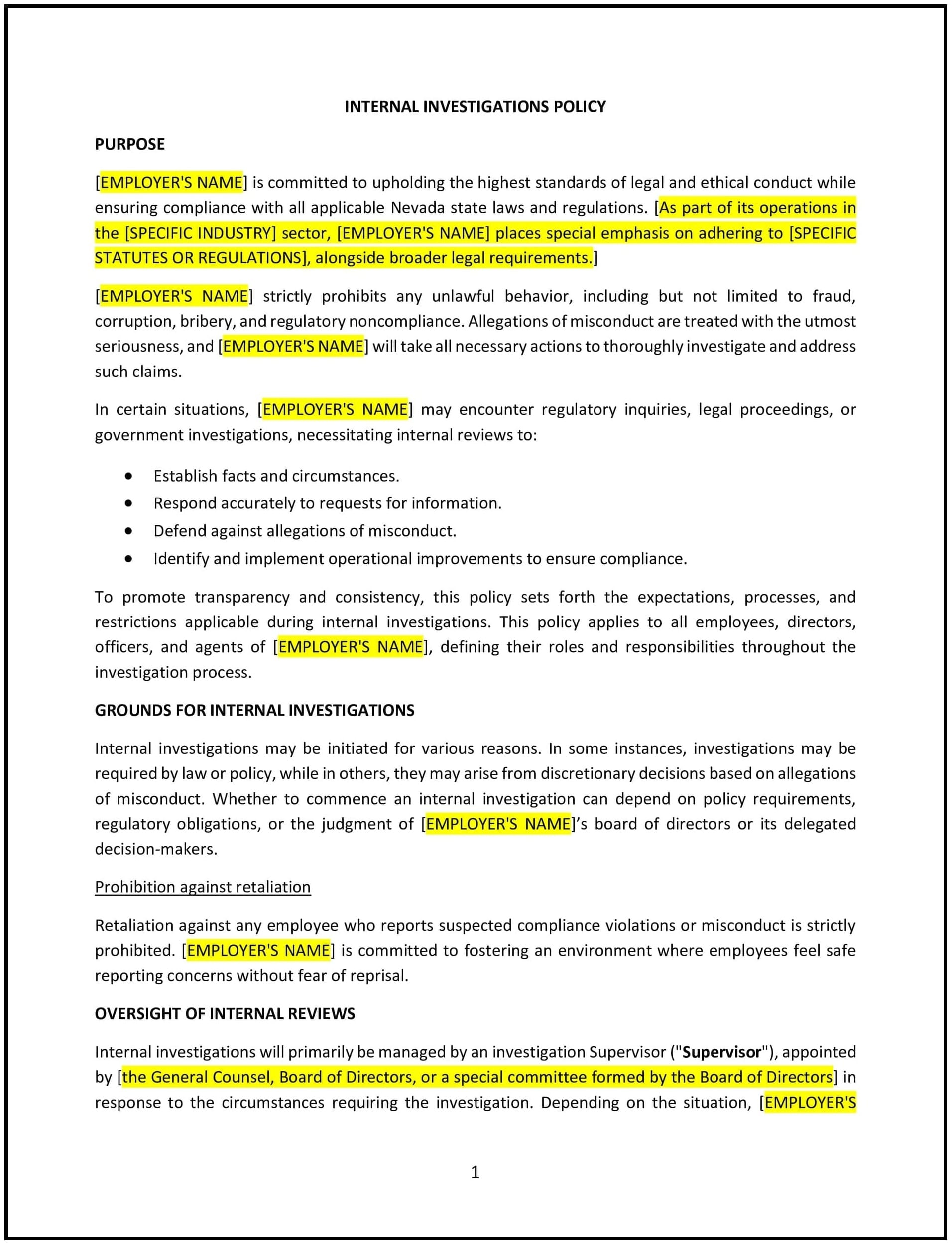Internal investigations policy (Nevada): Free template
Got contracts to review? While you're here for policies, let Cobrief make contract review effortless—start your free review now.

Customize this template for free
Internal investigations policy (Nevada)
This internal investigations policy is designed to help Nevada businesses handle workplace concerns, including complaints of misconduct, violations of company policy, or unethical behavior. It provides clear guidelines for conducting thorough, fair, and impartial investigations while protecting employee confidentiality and ensuring compliance with applicable laws.
By adopting this policy, businesses can address workplace issues effectively, minimize risks, and foster a culture of trust and accountability.
How to use this internal investigations policy (Nevada)
- Define the scope of investigations: Specify the types of issues covered, such as workplace harassment, discrimination, theft, or policy violations.
- Identify responsible parties: Assign responsibility for conducting investigations to a designated team or individual, such as HR personnel or legal counsel.
- Outline reporting procedures: Provide clear steps for employees to report concerns, including how to file complaints and who to contact.
- Emphasize confidentiality: Highlight the importance of maintaining confidentiality throughout the investigation to protect all parties involved.
- Establish investigation procedures: Detail the steps for conducting investigations, including gathering evidence, interviewing witnesses, and documenting findings.
- Ensure impartiality: Require investigators to remain neutral and avoid conflicts of interest during the process.
- Communicate findings and outcomes: Outline how and when the company will communicate investigation results to relevant parties, ensuring transparency while protecting privacy.
- Follow legal requirements: Improve compliance with Nevada and federal laws, including any regulations related to workplace investigations and employee rights.
Benefits of using this internal investigations policy (Nevada)
This policy provides several benefits for Nevada businesses:
- Promotes accountability: Encourages employees to report concerns, knowing they will be addressed fairly and thoroughly.
- Protects employee rights: Ensures investigations are conducted impartially and in accordance with legal requirements.
- Enhances workplace trust: Fosters a culture where employees feel safe to raise concerns without fear of retaliation.
- Reduces legal risks: Minimizes exposure to legal claims by following consistent and lawful investigation procedures.
- Supports organizational integrity: Reinforces the company’s commitment to ethical behavior and compliance with its policies.
Tips for using this internal investigations policy (Nevada)
- Communicate the policy clearly: Ensure all employees understand how to report concerns and what to expect during an investigation.
- Train investigators: Provide training for individuals responsible for conducting investigations to ensure consistency, fairness, and compliance.
- Document all steps: Keep detailed records of every stage of the investigation, including complaints, interviews, evidence, and outcomes.
- Protect against retaliation: Reinforce that retaliation against employees who report concerns or participate in investigations is strictly prohibited.
- Review and update regularly: Periodically assess the policy to reflect changes in laws, workplace practices, or company needs.